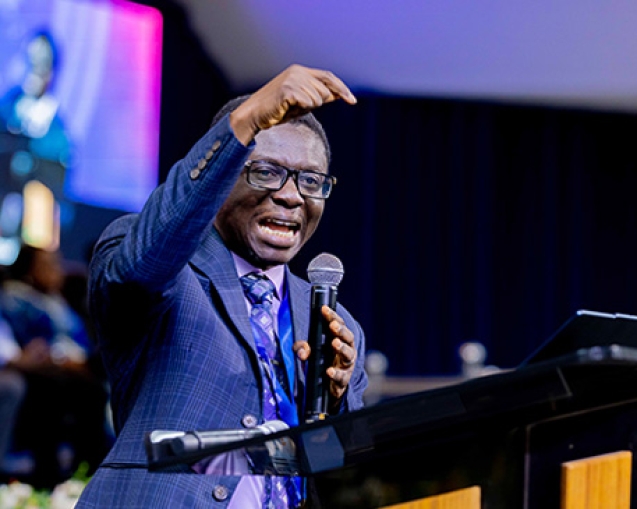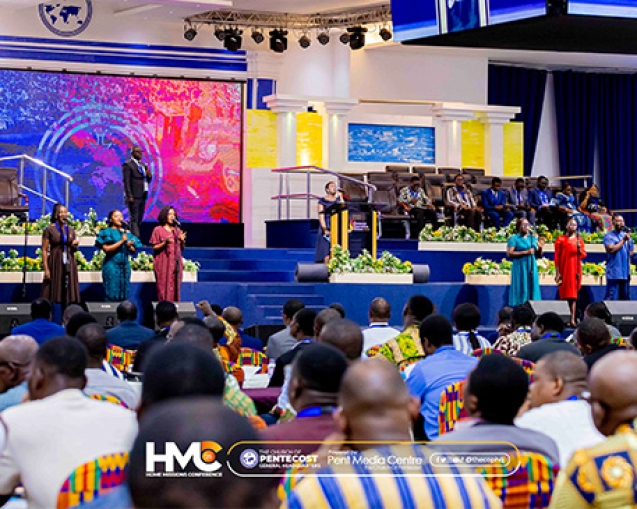His parents called him “Barabbas” which means “son of the Father”. Others call him Jesus Barabbas which would also mean, “Jesus, son of the Father”. Probably, his parents dedicated him to God by giving him that name, for Jewish names bear their meanings. Or possibly, to prove his Father’s love and likeness for him. But neither of these were evidently seen in Barabbas’ life whilst growing up; probably due to the bad associations he kept, which tilted his life gradually away from the name he bore.
Barabbas became a hardened criminal noted for robbery, murder and rebellion. As a notorious robber and a rebel leader, Barabbas murdered people, and raped and maimed others (as is usual with armed robbers). As typical of such criminals, Barabbas may have been highly addicted to drugs and also found it very difficult to maintain a successful marriage. If he lived in this 21st century, he may have been all over the media and the internet; he was declared wanted when he engaged in that insurrection to overthrow the government of his days. Luke affirms this by saying, “Barabbas was in prison for taking part in an insurrection in Jerusalem against the government, and for murder” (Luke 23:19 NIV). It is for this reason that no one can deny the fact that this man was a burden to society and family. All he brought home was unrest, shame and humiliation.
One day, probably after their usual raid and political stirrings, he was intercepted by the Roman guards and was subsequently imprisoned. When he was taken to court, the prosecutor passed his judgement and imprisoned him for life. As if that would change him, he rather became more hardened and was known to his country folks as a notorious prisoner.
Every year, the Governor would usually grant amnesty to a prisoner. As usual, they would select the prisoner whose charge is less criminal, has been falsely accused or has really repented, and whose character has evidently been transformed.
Barabbas would not qualify for any of these categories. So, to be granted clemency was impossible. Again, his case was very different because he was not only a robber and a murderer, Barabbas was a political revolutionist. He was politically motivated to overthrow the Roman government. He may have been with the Zealot party of the Jewish sects because of his zealousness to fight the Roman government. He had committed a treasonable offence and there was no way he could be granted clemency from the same person who is his political opponent.
But this particular year the custom seemed a bit different. He was summoned by the senior security guard who usually performs this yearly duty. He made him to follow him, and he did. Barabbas was led to the courtyard of the governor, Pontus Pilate.
Permit me to try to be a bit graphic at this juncture, let us assume that he was ushered in at the time when the great crowd who were at the forecourt of Pilate’s palace started shouting, “Away with Him, away with Him! Crucify Him!” (John 19:15). I believe this hardened criminal would for the first time in his lifetime break down and probably seek for mercy because none of us would prefer being killed. He may have thought, “My end has surely come… but why won’t these people allow me to serve my life sentence?
While he was still having these thoughts running through his mind, Pilate asks them [the crowd], “Shall I crucify your King?” (John 19:15). King? He would think to himself. Ha-ha, I am never a king? When did I become one? Or they are referring to me as the king of the sinners and prisoners? For that I am!
At this time, he decides to lift up his eyes to look at the Pontius Pilate on his judgement seat. When he did, he was shocked what he saw. There before the throne of Pontius Pilate, he sees this young man who is probably in his thirties, whose appearance had been marred by great beatings and scourging. The flesh on his back was torn beyond repairs, his face was highly disfigured, and there were clots of blood all over His body.
When he saw Him, his heart was further broken, but for the young man he saw. And he remembered the first time he stood before his prosecutor. Then his thoughts kept running again with lots of questions: “Is it possible that this man may have been a more notorious sinner than myself?” “But what did He really do?” However, these questions could be mere rhetoric because, as a notorious prisoner, he had no opportunity to speak to anyone in the courtyard; he was already hated. Therefore, he only had to keep silent and watch what was happening.
Suddenly, a messenger rushes into the courtroom and seeks to whisper something into Pilate’s ears. When he was granted the permission, he said something into his ears that made his countenance fall. Later, it came out that, what the messenger whispered into Pilate’s ears was actually a message from his wife which said, “Leave that innocent man alone. (For) I suffered through a terrible nightmare about him last night” (Matthew 27:24 NLT). Perplexed, Pilate descends from his throne, takes water and washes his hands before the multitude, and declares, “I am innocent of this man’s blood. The responsibility is yours!” (Matthew 27:24 NLT).
But then, the crowd shouted and said, “We will take responsibility for his death—we and our children!” (Matthew 27:25 NLT). In fact, Pilate became more disturbed when the people threatened saying, “If you release this man, you are no ‘friend of Caesar.’ For anyone who declares himself a king is a rebel against Caesar.” (John 19:12 NLT).
So, Pilate came and stood between Jesus and Barabbas and queried, “Which of these two do you want me to release to you?” Knowing that, he did not deserve any amnesty, Barabbas was not even expecting the release. But to his amazement, the crowd shouted back at Pilate, “Barabbas!” (Matthew 27:22 NLT). Then Pilate responded, “Then what should I do with Jesus who is called the Messiah?” They shouted back, “Crucify him!” (Matthew 27:23 NLT). The people chose Barabbas, the notorious prisoner ahead of Jesus, whom the people had falsely accused, to live. Thus, Jesus must be crucified! Indeed, He [Jesus] took Barabbas’ place and died for him!
So, Barabbas was released from prison, and given the full privileges due to any citizen of the Jewish nation. He could move about without any sense of guilt or restrictions from any authority. But Jesus was released to the soldiers to be further beaten and mistreated and eventually crucified. It is very possible that while all these things were going on, Barabbas stood in the crowd and kept saying to himself, “This should have been on me; I am the one who truly deserves this”. Why would a notorious prisoner like me be spared and my life exchanged with that of a man of this stature? I am now free but I am still not worthy of this exchange! This is grace personified!
Later, as he went around among the people and listened to the crowd talk concerning this Jesus, Barabbas may have heard how Jesus was a good man, a healer, a teacher and a prophet. Barabbas would have heard how this Jesus had raised the dead, supplied food to the hungry and calmed the raging sea with a single command and even walked on water. He would have heard among the crowd how this Jesus had even claimed to be the son of God, and in fact equality with God; how He had said, anyone who had seen Him, had actually seen God. Which actually He was! He may have heard among the crowd how no one was able to accuse this Jesus of any sin; neither Pilate nor Herod (Luke 23:15). Even His friend (Judas) who betrayed Him to the Jewish authorities, remorsefully went to the authorities and returned the money he had taken from them to betray Him. For he declared, “I have sinned, for I have betrayed an innocent man” (Matthew 27:4 NLT). He may also have heard how the Jewish authorities were actually envious of Jesus so they incited their people against Him. Therefore, the whole choice was out of their own selfish interest and no fault of the man Jesus (Matthew 27:18 NLT).
Of course, it will be very unusual for Barabbas to go home after hearing all these about this man. So, he followed them to Golgotha, the place where they finally nailed Jesus to the cross. He saw how Jesus hanged there for about six hours with two others who were executed because they were thieves, and he watched this innocent man die out of pain and agony. Barabbas watched how Jesus prayed for the very soldiers who were nailing Him to the cross and those who were mocking at Him saying, “Father, forgive them, for they don’t know what they are doing.” (Luke 23:34 NLT). He watched how Jesus demonstrated His love for His mother even on the cross when He said to his mother, “Dear woman, here is your son.” And he said to Apostle John, “Here is your mother.” (John 19:26–27NLT). He committed His mother’s care into John’s hands. What a loving saviour this Jesus is! Barabbas watched how his story played out for one of the thieves who hang on the cross beside Jesus. He saw how Jesus promised the thief on the cross who sought for His mercy to be with Him in His kingdom that, “I assure you, today you will be with me in paradise.” (Luke 23:43 NLT).
As Barabbas kept watching, he heard Jesus shout with a loud voice and said, “I am thirsty” (John 19:28 NIV); again, “It is finished!” (John 19:28 NIV); and finally, “Father, into Your hands I commit my spirit” (Luke 23:46 NIV). Then, as he looked, Jesus bowed His head on the cross and gave up His spirit (John 19:30 NLT).
Barabbas then saw how at Jesus’ death darkness covered the earth. He again witnessed how the earth trembled vigorously, rocks split apart, and the veil of the temple got broken.
Barabbas saw how the Roman officer and the other soldiers at the crucifixion were terrified by the earthquake and the unfolding events. He also heard how they declared, “This man truly was the Son of God!” (Matthew 27:51-54). All these were confirmation of the very things he had heard the crowd say Jesus claimed about Himself when He was alive.
Seeing and hearing all these things, I can imagine Barabbas, a hardened criminal bursting into tears all over his face and shivering as the events unfold one after the other. I can imagine a Barabbas who has been filled with exceeding joy and gratitude for his release from a life sentence but at the same time, is highly sorrowful for what his Saviour must go through just to make up for his release.
Later, Matthew would report that, as evening approached, Joseph, a rich man from Arimathea who had become a follower of Jesus, mastered courage and went to Pilate and asked for Jesus’ body, and he was given permission. Joseph took the body and wrapped it in a long sheet of clean linen cloth. He placed it in his own new tomb, which had been carved out of the rock. Then he rolled a great stone across the entrance and left. (Matthew 27:57-60 NLT)
Matthew would continue that, on the next day, on the Sabbath, the Saturday, the leading priests and Pharisees went to see Pilate. They told him, “Sir, we remember what that deceiver once said while he was still alive: ‘After three days I will rise from the dead.’ So we request that you seal the tomb until the third day. This will prevent his disciples from coming and stealing his body and then telling everyone he was raised from the dead! If that happens, we’ll be worse off than we were at first.” Pilate replied, “Take guards and secure it the best you can.” So, they sealed the tomb and posted guards to protect it. (Matthew 27:62-66 NLT).
The most shocking part of the whole story would happen on the third day, the resurrection Sunday morning. The whole Jewish nation would come to a standstill because Matthew would report that, the guard came into the city and reported to the chief priests that the man who had died on the cross and had been securely buried for three days, had actually resurrected just as He said when He was alive! (Matthew 28:11 NLT). Disappointed and afraid, the elders of the Jewish nation would try their best to conceal this story. They would bribe the security guard to conceal the matter of the resurrection but it would be too late. Jesus would keep manifesting Himself to as many people as possible (over five hundred people 1Cor, 15:4-8 NKJV) and giving proofs of His resurrection by allowing people to feel the places on His body where He was wounded and even by eating with His disciples.
The Bible gives no clue, and secular history does not help to know whether Barabbas went back to his life of crime or eventually became a Christian, but it would be surprising if he had failed to show appreciation for the mercy and grace Jesus shown him, and vowed to follow Him all the days of his life as well as to testify of Him to others.
The freedom Barabbas enjoyed at the expense of Jesus’ suffering echoes the words of the prophet Isaiah which says that, “Yet it was our weaknesses he carried; it was our sorrows that weighed him down. And we thought his troubles were a punishment from God, a punishment for his own sins! But he was pierced for our rebellion, crushed for our sins. He was beaten so we could be whole. He was whipped so we could be healed. All of us, like sheep, have strayed away. We have left God’s paths to follow our own. Yet the LORD laid on him the sins of us all” (Isaiah 53:4-6 NLT).
Isaiah’s prophecy would help us to begin to appreciate that, beyond the envy and the self-interest of the Jews who killed Jesus by the hands of the Romans, God was actually working through all those happenings to demonstrate His compassion and grace to the world through the sufferings of Jesus. Jesus was actually being exchanged for notorious and hardened sinners (criminals) like Barabbas according to the plan (wisdom) of God. Hallelujah!
To sum it up, Barabbas was released from condemnation he never anticipated at the expense of Jesus’ death. In like manner, all humanity can now be allowed to go free with no condemnation (Romans 8:1) if they would accept God’s own provision for their sin, Jesus (John 1:29) and put their confidence in Him. Just as the scriptures declare, “If you (anyone) openly declare that Jesus is Lord and believe in your heart that God raised him from the dead, you will be saved” (Romans 10:9 NLT).
I, therefore recommend to you Jesus Christ, the true saviour of the world. He has paid the debt for the sin of the world through His death and resurrection. He has now opened the door for all who were formerly aliens and enemies as far as the Kingdom of God is concerned to enter into an eternal covenant and a personal relationship with God, the Creator and Sustainer of the universe, by way of becoming members of His household forever!
Written by P/Ovr. Isaac Kwabena Tagoe (Pentecost University-STML)


















